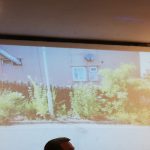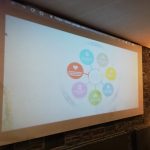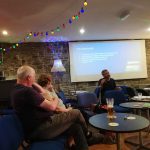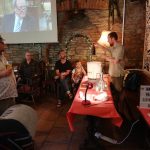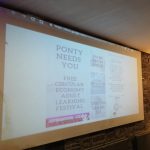 Pontydysgu are partners in a new project on Artificial Intelligence and vocational Education and Training, starting this month. The project will last for two years and is funded through the EU Erasmus Plus programme. It is coordinated by the Institut Technik und Bildung at the University of Bremen and includes partners from Greece, Italy and Lithuania.
Pontydysgu are partners in a new project on Artificial Intelligence and vocational Education and Training, starting this month. The project will last for two years and is funded through the EU Erasmus Plus programme. It is coordinated by the Institut Technik und Bildung at the University of Bremen and includes partners from Greece, Italy and Lithuania.
Below is a description of the project. There is also a short form to sign up for project newsletters and if your organisation is interested, to join the project as associate partners.
Artificial Intelligence (AI) can be defined as a computer system that has been designed to interact with the world in ways we think of as human and intelligent. Ample data, cheap computing and AI algorithms mean technology can learn very quickly. The transformative power of AI cuts across all economic and social sectors, including education. UNESCO says AI has the potential to accelerate the process of achieving the global education goals through reducing barriers to accessing learning, automating management processes, and optimizing methods in order to improve learning outcomes. Education will be profoundly transformed by AI.Teaching tools, ways of learning, access to knowledge, and teacher training will be revolutionized.
A recent European Joint Research Council policy foresight report suggests that “in the next years AI will change learning, teaching, and education. The speed of technological change will be very fast, and it will create high pressure to transform educational practices, institutions, and policies.” They say it is therefore important to understand the potential impact of AI on learning, teaching, and education, as well as on policy development.
AI is particularly important for vocational education and training as it promises profound changes in employment and work tasks. There have been a series of reports attempting to predict the future impact of AI on employment, producing varying estimates of the number of jobs vulnerable to automation as well as new jobs which will be created. But the greatest implications for VET lies in the changing tasks and roles within jobs, requiring changes in initial and continuing training, for those in work as well as those seeking employment. Cooperative robotics offers new work designs and job scenarios for occupations avoiding repetitive work tasks. This will require changes in existing VET
content, new programmes such as the design of AI systems in different sectors, and adaptation to
new ways of cooperative work with AI.
If teachers are to prepare young people for this new world of work, and to excite young people to engage with careers in designing and building future AI ecosystems, then VET teachers and trainers themselves require training to understand the impact of AI and the new needs of their students. There is an urgent need for young people to be equipped with a knowledge about AI, meaning the need for educators to be similarly equipped is imperative. This requires cooperation between policy makers, organisations involved in teacher training, vocational schools and occupational sector organisations, including social partners.
For VET teachers and trainers there are many possible uses of AI including new opportunities for adapting learning content based on student’s needs, new processes for assessment, analysing possible bottlenecks in learners’ domain understanding and improvement in guidance for learners. AI systems can provide diagnostic data to learners so that they can reflect on their metacognitive approaches and areas in need of development. New pedagogical possibilities include learning companions based on affective computing and emotion AI. AI systems can help in interpreting
activities undertaken in VET, linking theoretical and practice-based learning.
AI can be a key technology in the modernisation of VET by providing new opportunities for adapting
learning content based on student’s needs, new processes for assessment, analysing possible bottlenecks in learners’ domain understanding and improvement in guidance for learners. The project will promote open innovative methods and pedagogies and develop learning materials, tools and actions in the form of Open Educational Resources that support the effective use of Information and Communication Technologies (ICT) to provide initial training and continued professional development for VET teachers and trainers in Artificial Intelligence. The project will extend the European Framework for the Digital Competence of Educators, a reference framework tool for implementing regional and national tools and training programmes to include AI.
The project will seek to support VET teachers and trainers in extending and adapting open curriculum models for incorporating AI in vocational education and training. Furthermore, the project will develop an Open Massive Open Online Course in AI in education in English and German, open to all teachers and trainers in VET in Europe. The course materials will be freely available for other organisations to use for professional development.
The realisation of the potential of AI for VET requires the involvement of European teachers and trainers in designing solutions to the key educational challenges facing VET. Technologists alone cannot design effective AI solutions. The implications of AI for VET curriculum and for teaching and training in schools and the workplace are profound and educators must engage in discussing what needs to change as a matter of urgency

 Tomorrow is the kick off day for our new project on the Circular Economy for Youth (CEYOU). Below is a short description of the project. As always we welcome participation from non project partners: just email me or leave a message if you would like to know more.
Tomorrow is the kick off day for our new project on the Circular Economy for Youth (CEYOU). Below is a short description of the project. As always we welcome participation from non project partners: just email me or leave a message if you would like to know more.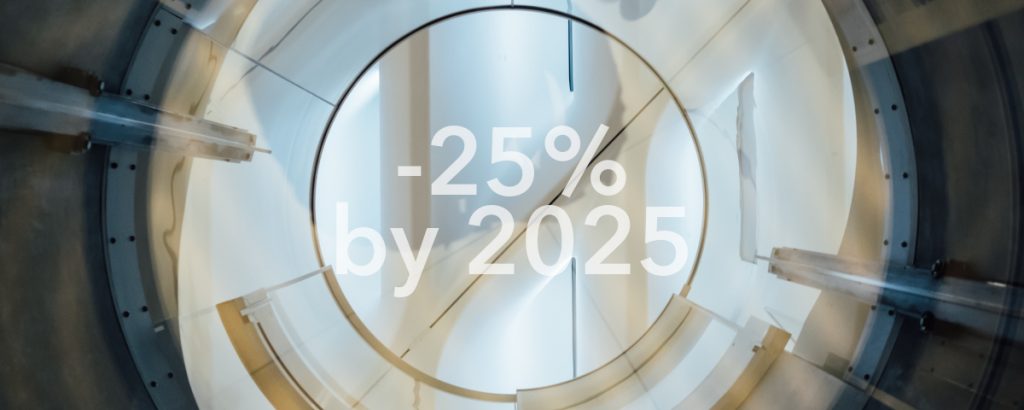 In just one week, ACR+ will unveil its new campaign “More circularity, less carbon”. Participating cities and regions are committing to reduce their carbon emissions linked with local resource management by 25% by 2025!
In just one week, ACR+ will unveil its new campaign “More circularity, less carbon”. Participating cities and regions are committing to reduce their carbon emissions linked with local resource management by 25% by 2025!









